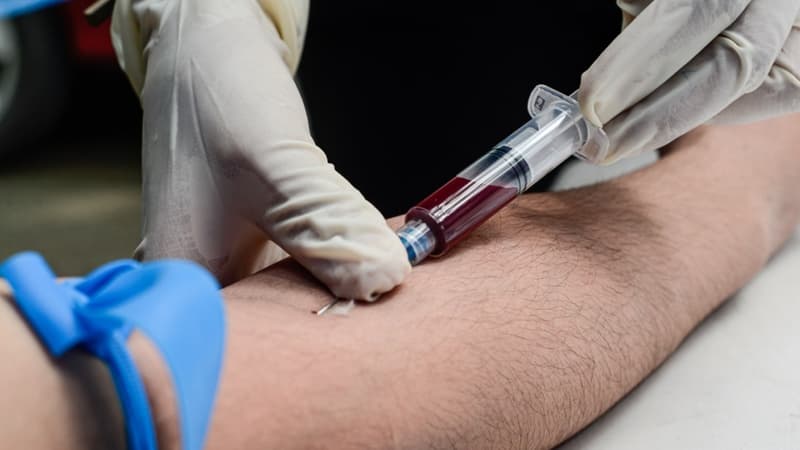According to a recent study led by Dr. Nicholas Ashton of the University of Gothenburg and his colleagues, published in the American journal Jama Neurology, a blood test could detect Alzheimer’s disease.
Less painful and invasive than lumbar punctures, until now performed on patients, this new type of screening would “revolutionize” the diagnosis of the disease, according to experts.
A protein present in the blood.
In this study, carried out with 786 people, researchers were able to use the ALZpath p-tau217 test to identify three groups of individuals: susceptible patients, moderately susceptible patients and those unlikely to be affected by Alzheimer’s disease, indicates Sky News.
The results showed that the p-tau217 protein was an important marker of biological changes that occur in the brain in Alzheimer’s disease. According to experts, measuring the level of this p-tau217 protein in the blood could be very effective in detecting signs of the disease.
“This study is a step in the right direction because it shows that blood tests can be as accurate as more invasive and expensive tests,” said Dr. Richard Oakley, deputy director of research and innovation at the Alzheimer’s Society, quoted by the American channel.
“We still need to see more research in different communities to understand the effectiveness of these blood tests in all people with Alzheimer’s disease,” he added.
The hope of “systematic” screening
Currently, the only way to prove that a person has a buildup of proteins in the brain is to perform a lumbar puncture or a PET scan of amyloid, specifies The Guardian.
However, “this recent study suggests that measuring levels of a protein called p-tau217 in the blood could be as accurate as lumbar punctures,” explains Dr. Sheona Scales, research director of Alzheimer’s Research to the British magazine.
According to Professor David Curtis, from the Institute of Genetics at University College London, cited by The Guardian, this type of sampling would allow all people over 50 years of age to be systematically examined “every two or three years.”
“The combination of a simple screening test and an effective treatment for Alzheimer’s disease would have an enormous impact on individuals and society,” he added.
However, David Curtis reminds us that “the real hope” lies above all in the development of better treatments.
Source: BFM TV


